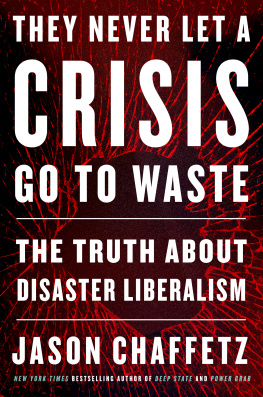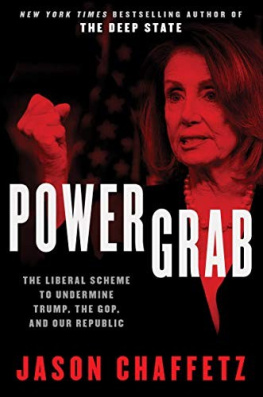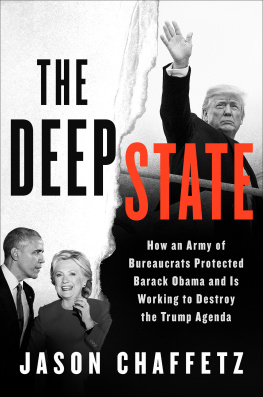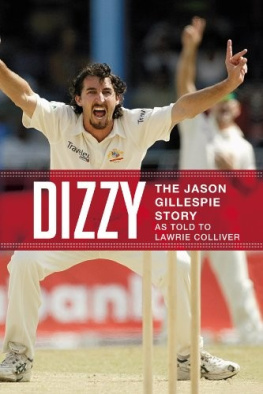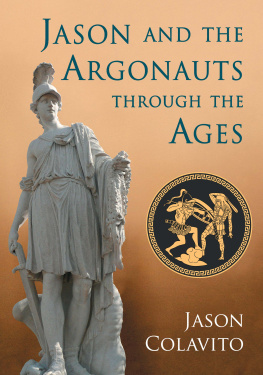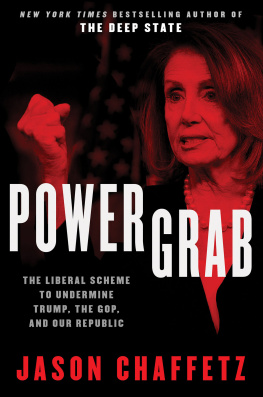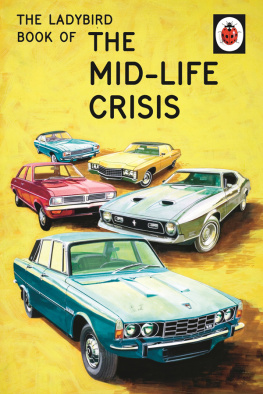Jason Chaffetz - They Never Let a Crisis Go to Waste
Here you can read online Jason Chaffetz - They Never Let a Crisis Go to Waste full text of the book (entire story) in english for free. Download pdf and epub, get meaning, cover and reviews about this ebook. year: 2021, publisher: Broadside e-books, genre: Politics. Description of the work, (preface) as well as reviews are available. Best literature library LitArk.com created for fans of good reading and offers a wide selection of genres:
Romance novel
Science fiction
Adventure
Detective
Science
History
Home and family
Prose
Art
Politics
Computer
Non-fiction
Religion
Business
Children
Humor
Choose a favorite category and find really read worthwhile books. Enjoy immersion in the world of imagination, feel the emotions of the characters or learn something new for yourself, make an fascinating discovery.
- Book:They Never Let a Crisis Go to Waste
- Author:
- Publisher:Broadside e-books
- Genre:
- Year:2021
- Rating:5 / 5
- Favourites:Add to favourites
- Your mark:
- 100
- 1
- 2
- 3
- 4
- 5
They Never Let a Crisis Go to Waste: summary, description and annotation
We offer to read an annotation, description, summary or preface (depends on what the author of the book "They Never Let a Crisis Go to Waste" wrote himself). If you haven't found the necessary information about the book — write in the comments, we will try to find it.
They Never Let a Crisis Go to Waste — read online for free the complete book (whole text) full work
Below is the text of the book, divided by pages. System saving the place of the last page read, allows you to conveniently read the book "They Never Let a Crisis Go to Waste" online for free, without having to search again every time where you left off. Put a bookmark, and you can go to the page where you finished reading at any time.
Font size:
Interval:
Bookmark:
Dedicated to:
The People Who Love the United States of America
As a newly elected member of Congress in 2008, the same election cycle that Barack Obama was elected president, I didnt get to serve with Congressman Rahm Emanuel. He departed to become the incoming White House chief of staff as I was being sworn in for my freshman term. But not long after my first introduction to him, he would make a statement that would come to define the politics of the left throughout the next decade of my political career.
I was new to Congress when Emanuel and I first met. He knew who I was, thanks in part to a cover story by one of the Capitol Hill newspapers profiling me as a freshman who would be sleeping on a cot in my office.
On one of my first trips to Washington, D.C., I had brought with me a cot that I bought at Smiths Food & Drug in Highland, Utah. I hauled it to D.C. wrapped in giant Hefty garbage bags and duct tape. As I rolled off the plane and pulled that duct-taped monstrosity off the baggage carousel, photographers were there waiting to talk to one of the Houses newest members. The cot became famous. At least famous enough for the notorious Rahm Emanuel to take notice.
A few weeks later, I met the man known as Rahmbo at one of those ubiquitous dinner events for which D.C. is known. As we shook hands his only comment was, You need to get out of the office more often, with a big smile on his face. Clever. He certainly had his finger, although he is missing one, on the pulse of Washington, D.C., even on a freshman in the minority party.
It wasnt long after I met him that he did a broadcast interview with the Wall Street Journal where he was quoted as saying, You never want a serious crisis to go to waste. And what I mean by that is an opportunity to do things you think you could not do before.
It was a sentiment that reflected a governing philosophy any 2020 election voter can easily recognizeone reflected in the title of this book. I think there was a collective gasp in the Beltway at the time because Emanuel actually articulated what everyone knew to be true. Rahm Emanuel was rooted in politics, partisan to a fault, and as aggressive as they come. Nobody should have been shocked by his comments.
A while later I would learn firsthand the reality of governing by crisis. It is infuriating, frustrating, and wrong. Its why sane people come to the natural conclusion that Washington, D.C., isnt workingdriving rational people to the point of disgust.
The question I most often get is, what can I do? How can I make it better? How do I stand up for my family, my community, and my country?
Somehow, some way we have to break the cycle and collectively be brave enough to overcome the impediments to sound public policy. It means flushing out those career politicians who continue to get paid regardless of the outcomes. It means learning to recognize the hypocrisy and hold people accountable for what they do and do not do. It means putting our country before the selfish, petty politics of the moment. It means fighting through the bureaucracy. It means being an adult and having truth-based discussions about the reality of the situation and our future. It also means standing up for our country, our freedoms, our constitution, and understanding our history, the good and the bad, and doing it responsibly in a manner that would make us all proud.
In other words, it is an America First agenda, not just on foreign policy or a particular issue, but in standing up for our country, our flag, our rights, our freedom, and our future. We should learn from the past, strive to become better, respect our neighbors, and love those around us no matter their background.
But in a time of intense polarization, when the overlap between the beliefs of the left and right seems to have disappeared, passing even the most basic legislative solutions has become a heavy lift. To get around this challenge, the left has embraced what I call disaster liberalism.
Disaster liberalism is a means by which Democrats use the threat of an impending crisis to justify enacting unpopular or unconstitutional policies on an accelerated timeline that bypasses traditional checks and balances. Whether the crisis is legitimate, fabricated, or exaggerated, the solution is always the same: more government, less individual freedom, higher spending, higher taxes. Every crisis becomes a vehicle to enact an agenda that could not otherwise gain support in a democratic republic.
This is a strategy that works for the left. Voters tend to trust conservatives on economic policy, individual rights, and foreign policy. But on humanitarian issues, they relate to the emotional appeals of the heart. Disaster liberalism uses that emotional language to attack conservative concerns such as runaway spending, gun rights, or religious liberty as heartless. In this way, they can distract from the power grab buried inside their policy agenda. By cloaking the strengths of conservatism, they also hide the weaknesses of progressivism. But only so long as voters dont catch on. This book is intended to help voters do just that.
I clearly recall my first real taste of disaster liberalism. I had been elected on a promise of reining in government spending. It was my top priority. There was no way I was going to vote for bloated budget bills and opaque earmarks.
Then Hurricane Sandy barreled into the Eastern Seaboard in 2012, creating a crisis that demanded an expedited response. There would have been real suffering, legitimate need, and dire consequences if we didnt act. Of course I was going to vote in favor of spending to help those devastated by that destructive storm.
But to my disappointment, the so-called emergency spending included $24 billion for line items that wouldnt be spent for at least four years. The emergency response bill included funding for Head Start, new cars for the Drug Enforcement Administration, oil spill research, leaky roofs at the Smithsonian museums, and historic preservation at the National Park Service. The emergency became a vehicle by which pet policy priorities could be funded without the regular order of a budget process. I felt I had no choice but to vote for the bill.
Just like a business or household, when disaster strikes, another part of the budget needs to be adjusted. Heaven forbid we actually budget for contingencies. Though I knew we needed to help those in need, I was frustrated that we didnt have any discussion about where else we could have cut spending for the obvious and deserving disaster funding. Instead we did the opposite. We added new low-priority spending instead of cutting low-priority spending. It was a pattern that would repeat over and over again.
I wrote this book, with my incredibly talented partner in politics for the past decade plus, Jennifer Scott, because I hope people recognize, learn, and never forget what happens time and time again in Washington, D.C. The pandemic of 2020 was perhaps the worst health crisis our nation has experienced in my lifetime. The virus and its wrath was already enough, but far too many in our country used it, the murder of George Floyd, and the presidential election to justify the unjustified.
The pages of this book are intended to give perspective on how liberals use a crisis to further the long-term public policy agenda that they could never achieve through our democratic processes. Many of their goals are truly radical, foreign to our core values, and over-the-top. They have to use a crisis, or create a crisis, to use either a figurative bludgeon or sometimes outright violence, to get their way.
The content of this book will remind you of the perils of progressive policies. These are the same policies they would implement if not for the constant vigilance and effort of the silent majority, the American people. In these times of divided government, understanding these dynamics is more important than ever. When we recognize what they do, how they do it, and why they get away with it, we will all be empowered to fight back for the good of the nation.
Font size:
Interval:
Bookmark:
Similar books «They Never Let a Crisis Go to Waste»
Look at similar books to They Never Let a Crisis Go to Waste. We have selected literature similar in name and meaning in the hope of providing readers with more options to find new, interesting, not yet read works.
Discussion, reviews of the book They Never Let a Crisis Go to Waste and just readers' own opinions. Leave your comments, write what you think about the work, its meaning or the main characters. Specify what exactly you liked and what you didn't like, and why you think so.

